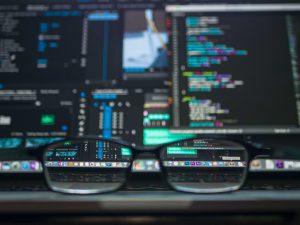An analyst may learn a lot about the individuals using a certain Internet address by looking at what they do online.
An Internet Protocol (IP) address is a number that may be used to specifically identify a computer or other form of technology on the Web or even through subnetworks. The acronym “IP” refers to the standards for data transmission through the Web or a local-area network.
Most people already know what IP is, but there are other things they are unaware of. For example, You might not be aware of this, but there are two types of IP addresses. A Private IP Address is the number that identifies your equipment on a connection and is assigned to it via a gateway, while a public IP Address, on the other hand, is the one your Internet operator has given your network so that it can be seen from the Web.
Also, to make the distinction easier, the public IP address range is more comprehensive than those set as private. If your IP address is public, anybody on the internet may be able to find you and provide the help you need. Do you want to know more? Read on to find out why an IP address is useful, what information it may provide, and the advantages it has over other methods of locating a computer.
What is an IP address?
As they specify a smartphone and computer’s geographical address and render them available for connectivity, IP addresses serve as the primary identifier that permits data to be transmitted across a system. To function properly, the internet requires a system of unique identifiers for each device, gateway, and a web server. IP addresses are an important part of the infrastructure that makes this possible and keeps the internet running.
By tracking it back to your Internet service provider, your approximate geolocation may also be determined from your publicly available IP address. Your internet activity may be more easily tracked if advertisers, authorities, or cybercriminals know where you’re connecting from. However, private IP addresses make it more challenging for an external server or individual to access your network and devices, increasing security on a local area network (such as the one in your house or workplace).
The IP address and the exposure it can cause
When it comes to the privacy of its users, geolocation data contained in an IP address is second to none. However, your location will not be revealed since you only share the channel’s Internet address and not your own. Instead, they will see your Internet service provider details. This may give you a general idea of where your device is in the world, but it won’t tell you where it is physically.
The data you can obtain
Just as no two people are the same, no two identical IP addresses are the same, and, like fingerprints, your Internet protocol leaves a trail when you navigate the Web. Finding these identifiers may tell a potential intruder a lot about who you are and the things you accomplish digitally, and it can also help them track you down. In general, an Internet protocol can tell you where you are located since it is issued to your device in the same way as phone local numbers.

An analyst may learn a lot about the individuals using a certain Internet address by looking at what they do online. A person’s online and offline habits may be pieced together using just their Internet Protocol (IP) number. This includes the pages they frequent, the applications they use, the places they’ve been, and other similar information.
Use a VPN to hide your IP. With a VPN, your online identity is masked by changing your public IP address with one that doesn’t identify your location.
A virtual private network (VPN) is an Internet-based service that encrypts your data in transit from your device to a remote server. Because of this, no one can see your true IP address while surfing the internet. To wrap things up, we ask that you use the same degree of discretion in your public statements that we do in our everyday lives.


Join the conversation!